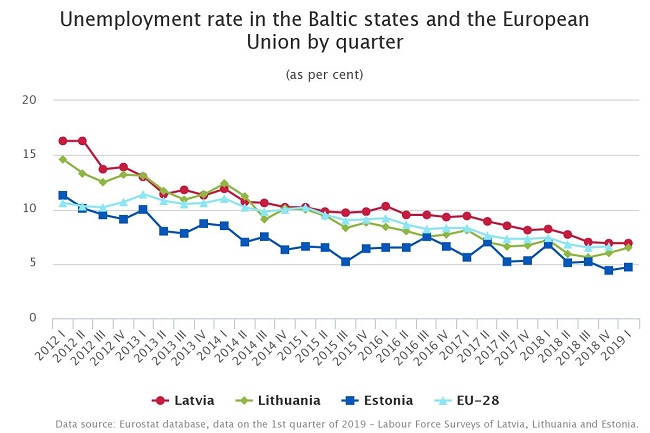Analytics, Demography, Financial Services, Latvia, Society, Statistics
International Internet Magazine. Baltic States news & analytics
Monday, 05.01.2026, 03:42
Share of population of Latvia feeling lonely and socially excluded increases with age
 Print version
Print versionOut of the Latvia population aged 16 and over, 5.9% felt lonely all or most of the time during the last month, 10.6% – some of the time, 20.2 % – a little of the time, and 63.2% – none of the time. Social exclusion rating rises with age as well and drops along with better social communication (2.9 points given by elderly population aged 75 and over and 1.3 points by people aged 25–34). Social exclusion was rated on average with 2 points out of 10 (from 0 (not at all excluded) to 10 (completely excluded)).

The lower income level, the more often people feel lonely and socially excluded
Income level has significant influence on feeling lonely and socially excluded. Majority (87.5%) of the richest population (people belonging to the fifth quintile group) indicated that during the last month felt lonely none or a little of the tome and rated social exclusion with 1.4 points. As income level gets lower, people more often feel lonely and socially excluded. Compared to the richest population, 10.6 percentage points fewer people living in the poorest households (belonging to the first quintile group) indicated that felt lonely none or a little of the time, moreover the social exclusion rating thereof was twice as high (2.7 points).
Feeling lonely and socially excluded is less common among couples with children and very frequent among single population
Almost all (94.9%) couples with children felt lonely none or a little of the time. The indicator is high also among couples without children (92.2%). The lowest social exclusion rating was given by couples with three and more children (1.1 points), followed by 1.2 points given by couples with two children and 1.4 points by couples with one child as well as one adult with one child. The high ratings in households with children show that children give adults a stronger feeling of being a part of society.
In 2018, single-person households accounted for more than one third (34.9%) of all households in the country, moreover, the share is growing. People living alone more often face social exclusion: population aged 64 and under rated feeling socially excluded with 2.3 points and people aged 65 and over on average with 2.9 points. Among single-person households, each tenth person (11.6%) aged 16–64 and each fifth person (20.1%) aged 65 and over felt lonely all or most of the time.
Data source: EU-SILC survey conducted by the CSB in 2018 that included questions on population well-being. Respondents were asked to assess separate aspects of their life – overall life satisfaction, satisfaction with financial situation in the household, job, time use, personal relationships, trust in others, social exclusion, as well as emotional well-being (feeling lonely, nervous, calm, depressed, happy, etc.) during the last month. The survey covered 6 thousand households and 11 thousand respondents aged 16 and over.








 «The Baltic Course» Is Sold and Stays in Business!
«The Baltic Course» Is Sold and Stays in Business!

